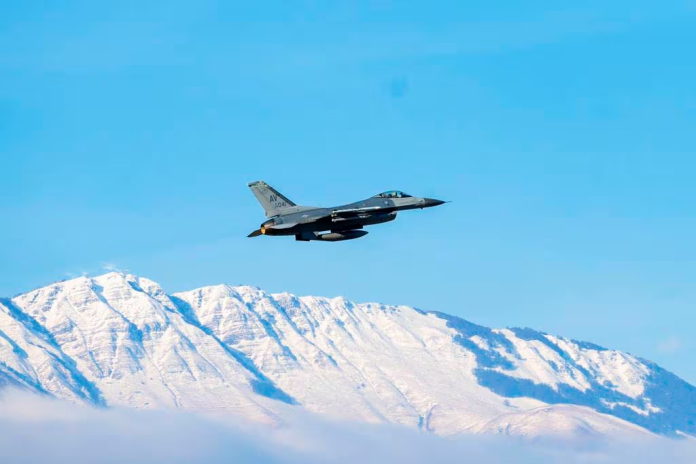Two US F-16 Fighting Falcon fighter jets flew over Republika Srpska territory in Bosnia and Herzegovina on January 8, signalling against nationally oriented activities on the eve of the banned Republic Day holiday.
Two aircraft conducted a bilateral air-to-ground training exercise with the Bosnian National Armed Forces in areas outside the control of Republika Srpska. The US Embassy stated:
“This bilateral training is an example of advanced military-to-military cooperation that contributes to peace and security in the Western Balkans as well as demonstrates the United States’ commitment to ensuring the territorial integrity of BiH [Bosnia and Herzegovina] in the face of anti-Dayton and secessionist activity. The United States has underscored that the BiH Constitution provides no right of secession, and it will act if anyone tries to change this basic element of Dayton.”
On January 9, Republika Srpska celebrates Republic Day, which many years ago was declared unconstitutional and banned by the state-level Constitutional Court. This comes against the backdrop of last year’s attempts by Republika Srpska President Milorad Dodik and his ruling SNSD party to pass laws rejecting the authority of state institutions and international community representative Christian Schmidt.
Republic Day marks the year 1992, when Bosnian Serbs declared their state in Bosnia, triggering a four-year war that killed more than 100,000 people, with millions left homeless.
Bosnia consists of two autonomous entities: the Muslim-Croat Federation and Republika Srpska. Each has its own institutions as well as state-level bodies.
The US Embassy also stated that the mission would be supported by a KC-135 Stratotanker, which would provide aerial refuelling for F-16s over Republika Srpska.
Dodik’s ruling SNSD party recently passed a law rejecting the authority of the Constitutional Court, as well as another law challenging Schmidt’s authority, claiming he was not properly appointed. Dodik was indicted last year for signing the two laws. The trial was due to start on December 20 but was postponed to January 20.
President Dodik claimed the ruling majority would soon pass an election law, rejecting the validity of a state-level act.
